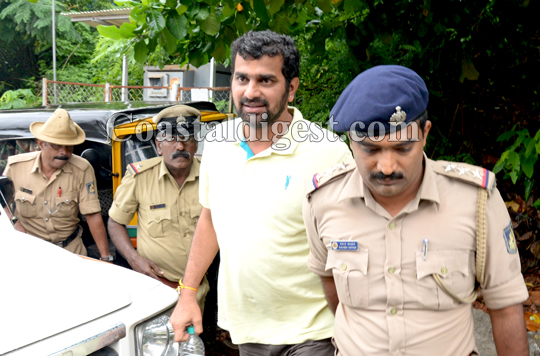Mangaluru, Oct 29: Believe it or not! Naresh Shenoy, aka NaMo Naresh, the prime accused in Mangaluru RTI activist Vinayak Baliga murder case, is one of the VIPs during Prime Minister Narendra Modi’s programmes in Dakshina Kannada on Sunday.

A photo of the official VIP pass issued to Shenoy though Sri Kshetra Dharmasthala Rural Development Project (SKDRDP) has gone viral on social media. Interestingly, the pass is jointly issued by Dakshina Kannada district police and SKDRDP.
Shenoy, a Manglauru based businessman and leader of Yuva Brigade (erstwhile NaMo Brigade), is the prime accused in the murder case of Vinayak Baliga, who was hacked to death near his house in Managluru on March 21, 2016 after raised voice against alleged corruption in a city-based temple.
After three months of manhunt, Mangaluru police had arrested Shenoy on June 26, 2016. However, he managed to get bail on September 15, 2016.
The Prime Minister on Sunday visited in Dakshina Kannada to address a public programme at Ujjire town near Dharmasthala and hand over RuPay cards to the Pradhan Mantri Jan Dhan Yojana (PMJDY) account holders.
Also Read: Narendra Modi becomes first sitting PM to visit Dharmasthala











Comments
Criminal Allowed to meet criminal tiz is BJP policy....ha.haaa
This is what india is moving to after communal bjp paty's rule. How such a respected Hegde organization supporting these criminals. A question stands on all Mangaloreans mind.
Add new comment